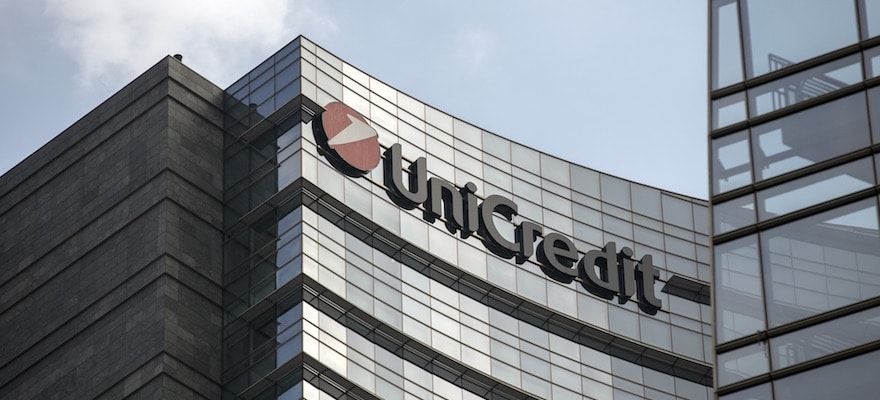The FT and Bloomberg are reporting that Italian lender UniCredit is said to be exploring a merger with the third biggest bank in France, SocGen. After an initial spike higher, shares of UniCredit traded flat on the news.
As counterparts risks across the European financial system rise, M&A deals are starting to do the rounds. Last year, a prospective merger between UniCredit and Commerzbank didn’t yield a final deal.
The rumours circulating in the media state that the French CEO of UniCredit, Jean Pierre Mustier is discussing a merger with SocGen, a bank where he worked earlier in his career.
SocGen Board Denies Discussions Took Place
The board of directors of SocGen denied that the deal has reached a stage which merited a discussion in an official statement.
The big unknown here is whether the discussions took place before or after the formation of the new Italian government between populist and nationalist formations in the local parliament. The recent implosion in bond spreads between Italy and Germany signifies market worries about the sustainability path of the Italian financial system.
As counterparts risks are rising, so does the likelihood that Italian banks will need to pay significantly higher interest rates on bonds when compared to the rest of Europe.
Volatility Risks Keep Rising
The imbalances within the European financial system are a positive development for brokers. At a time when the crucial new ESMA regulatory framework is set to get implemented, retail brokers are valuing every bit of higher volatility and market turmoil.
Trading volumes across the industry since the start of this year have been booming. The market is in sharp contrast to the latter parts of 2017, which has increased margins for brokers during the first half of the year.
This, in turn, has given them a sign of relief before the new ESMA regulatory framework kicks in. As the interbank lending spreads are widening, brokers will also need to look at their counterparty risks.


















